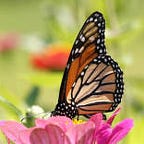FWS Scholar: Kris Budd
Kris Budd grew up in a military family for most of her childhood before finally settling down in the mountain town of Heber City, Utah. There, she explored much of the Wasatch backcountry by hiking, boating, and fishing. Kris received her Bachelor’s of Science in Biology from Southern Utah University in 2015 where her undergraduate research work focused on the mating behavior of the American Crocodile. Kris’s first publication on the American Crocodile titled, “Preliminary Mating Analysis of American Crocodiles, Crocodylus acutus, in Las Baulas, Santa Rosa, and Palo Verde National Parks, Guanacaste, Costa Rica” began her research career working with sensitive species.
She joined the Intergovernmental Internship Cooperative as a Wildlife Technician with the U.S. Forest Service and gained a passion for federal wildlife work where she worked with numerous indicator and sensitive species including the Northern Goshawk, Mexican Spotted Owl, Northern Flicker, Utah Prairie Dog, and Bald Eagle, and sensitive plant species; such as Arizona Willow. “Because of these earlier experiences, Kris decided to prepare for a career in wildlife management where she can directly influence the protection of sensitive species and their crucial habitats.”
This realization led her to push her education further by pursuing a Ph.D. in Biological Sciences from the University of Missouri. Her dissertation work as a National Science Foundation graduate research scholar focused on determining the impacts of human conflict on the Asian elephant. During this process, Kris worked in the People’s Democratic Republic of Lao to evaluate the impacts of hydroelectric dams on the larger landscape and how this habitat destruction not only directly impacted the elephants but also the increase in human-elephant conflict across the Laos landscape. Furthermore, she also evaluated elephant populations in Myanmar heavily impacted by direct human conflict through crop raiding and illegal killing for the skin trade. Her article, “Population structure and demography of Myanmar’s conflict elephants” sought to understand the population structure to help wildlife managers develop more effective and efficient conflict mitigation strategies for elephants of Bago Yoma Myanmar.
Another of Kris’ studies was on African forest and African savanna elephants, which found not only population level impacts from conflict, but also of individuals as their gut microbiomes shifted by species, crop-raiding, and habitat type. Read her article, “Effects of diet, habitat, and phylogeny on the fecal microbiome of wild African savanna (Loxodonta africana) and forest elephants (L. cyclotis),” published in the Journal of Ecology and Evolution.
Currently, Kris is a Biologist with the U.S. Fish and Wildlife Service Ecological Services in the Missouri Field Office. Her position allows her the opportunity to make a direct impact on the success of Missouri’s endangered species. She enjoys using her acquired skillset in conservation genetics and GIS to benefit all of Missouri’s species, but finds it most beneficial for illusive and difficult to detect species within hard to access habitats including streams, fens, cave and karst habitats. Because of this Kris gets to work directly with a great assemblage of endangered species from bats and birds to fish and dragonflies.
Despite working with a diverse range of taxa, the species Kris works with are united by a need for active conservation and management efforts. With human populations progressing further into valuable habitat, she believes it has never been more imperative to adequately manage wildlife alongside development, agriculture, recreation, and livestock. She shares, “In a career as a Biologist with the U.S. Fish and Wildlife Service, I hope to effect conservation for species and ecosystems impacted by expanding human development.”
With important considerations for disease resistance and spread, Kris Budd and others collaborated with the Missouri Department of Conservation to study the white-tailed deer, which showed no barriers to movement within the state. Check out this article for more information, “Genetic structure and recovery of white-tailed deer in Missouri.” This study gave Kris her first introduction to Missouri’s unique habitat assemblages allowing her to grow to love the species found locally in Missouri.
To learn more about Kris Budd’s Ph.D. research with elephants, check out her recent publication titled, “Effects of diet, habitat, and phylogeny on the fecal microbiome of wild African savanna (Loxodonta africana) and forest elephants (L. cyclotis)” discoverable via USFWS Conservation Library. For other information on her work with Missouri’s endangered species, visit their page. #FWSscholar is brought to you by the USFWS Library, #WeAreUSFWS.
